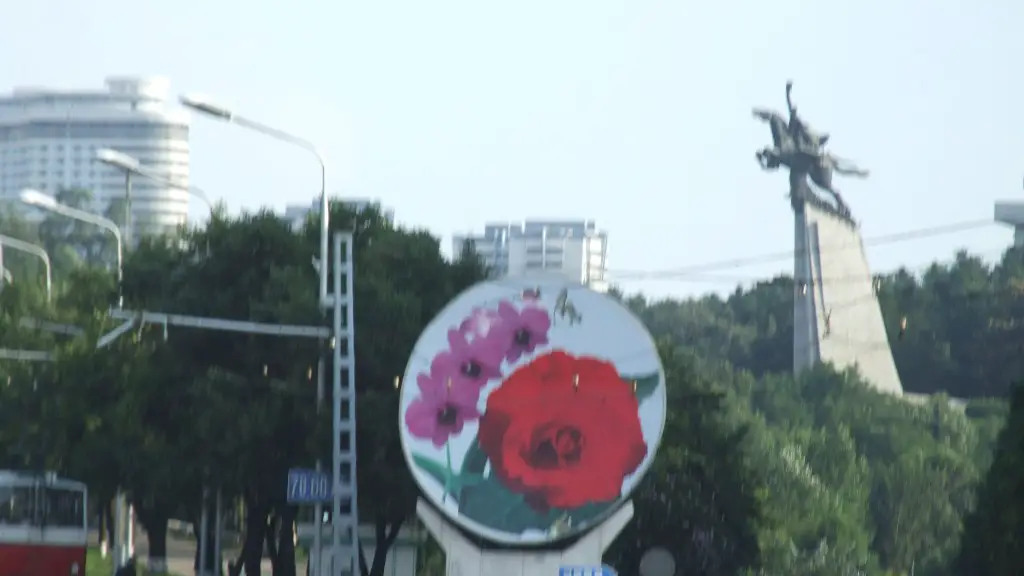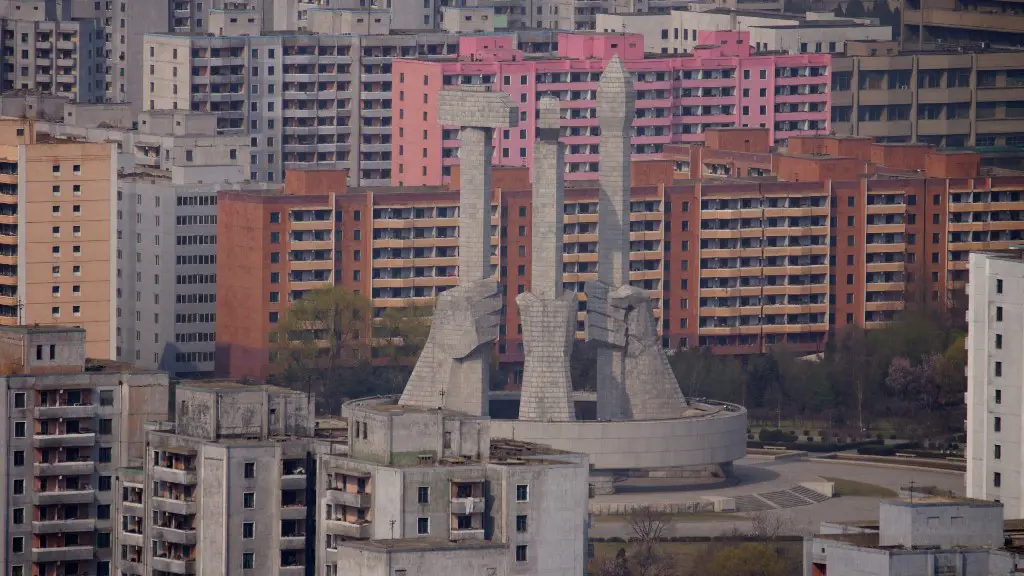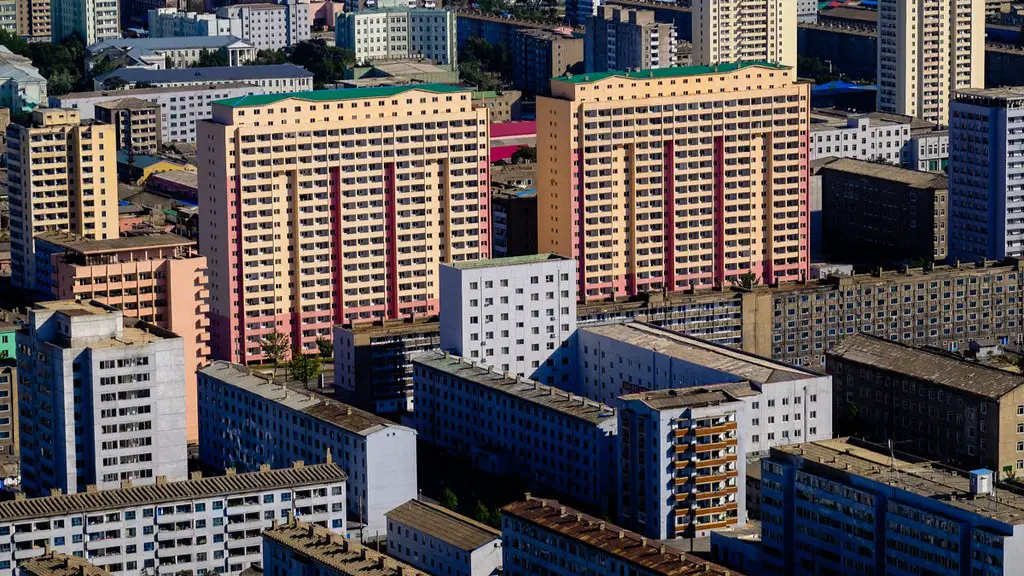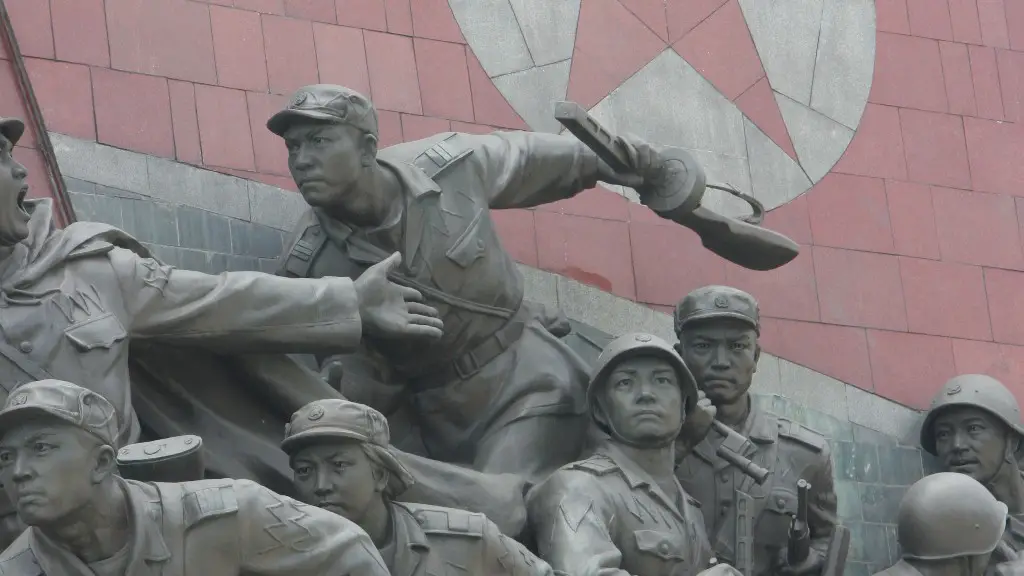The Bible is the oldest religious text and is considered to be the ultimate source of truth. North Korea, on the other hand, is one of the most oppressive countries in the world and its policy is based on a very different worldview. What is the common thread that connects these two seemingly disparate entities?
The Bible holds an important place in North Korea’s history. North Korea was previously part of the Korean Empire, a monarchy which was made up of traditional Confucian beliefs and was heavily influenced by Buddhist and Shamanistic practices. The Christian Church of Korea was established in Pyongyang in 1900, and the Bible was immediately forbidden by the government after the Korean War. Christianity, as well as all other religions, were seen as a threat to the government’s power and were banned from the country.
While North Korea officially bans the practice of Christianity and prohibits public worship, there are reports of secret Christian communities operating within the country. There have been reports of underground churches hosting services where the Bible is read and discussed. However, due to the extreme oppression, those caught engaging in religious activities can face severe consequences, ranging from imprisonment to death.
The Bible does not explicitly mention North Korea. However, there are several passages which may be seen as applicable to the situation. One such passage is Proverbs 24:21, “My son, fear the Lord and the king; do not associate with those who are given to change.” This is often interpreted as warning against getting involved in politics and remaining loyal to the governing power.
Romans 13:1-7 is another biblical passage which could be seen as relevant to North Korea. According to this passage, everyone is obligated to obey the governing powers and should respect their authority. This has been used to rationalize the oppressive laws of North Korea and the government’s control over its citizens.
It’s also important to note that the Bible also advocates for justice and mercy, as seen in passages such as Proverbs 31:8-9, “Speak up for those who cannot speak for themselves; ensure justice for those being crushed. Yes, speak up for the poor and helpless, and see that they get justice.” This has been cited by Christian activists as a call for them to speak out on behalf of those suffering in North Korea and take action to help relieve their suffering.
Political Structure of North Korea
The government of North Korea is a complete dictatorship and one of the most oppressive countries in the world. North Korea was founded in 1948 and is ruled by the Kim family, who have total power over the country. North Korea is also one of the most isolated countries in the world, and the government has complete control over media and communication.
One of the most detrimental aspects of North Korea’s political system is its lack of freedoms. Political, economic and civil rights are constantly and systematically violated, and the small minority of citizens that are able to access any kind of media or communication are subject to intense censorship. This has resulted in an information blackout, leaving the citizens in a state of ignorance and unable to access basic human rights.
North Korea also has a strong policy of military power and militarization. The government has been accused of human rights abuses and has pursued an aggressive foreign policy. This includes engaging in nuclear testing and developing ballistic missiles.
The combination of its oppressive political system, isolation, and militarization make North Korea one of the most vulnerable countries in the world.
Conditions In North Korea
The conditions in North Korea are among the worst in the world. Human rights abuses and poverty are rampant in the country and the citizens have been living under a constant state of fear and oppression.
The majority of North Koreans are denied basic human rights such as freedom of speech, access to information, and health care. The government also has a policy of censorship, meaning that citizens are unable to access any news or information outside of what the government approves. This has resulted in a lack of access to education and healthcare for many North Koreans.
The economy of North Korea is also in a state of stagnation. The citizens are currently facing severe poverty and food shortages due to a lack of access to international trade and investment. This has exacerbated the already desperate conditions the citizens are living in.
The government of North Korea also restricts the movement of its citizens, leading to a sense of isolation and loneliness. This has resulted in many North Koreans feeling socially disconnected and unable to access basic necessities.
North Korea’s Relationship With Other Countries
The international community has largely condemned North Korea’s oppressive regime and human rights abuses. The United States and its allies have imposed economic and diplomatic sanctions on North Korea in an effort to push the government to reform its policies.
The United Nations has also tried to address the violation of human rights in North Korea by imposing resolutions against it. In 2016, the United Nations imposed a resolution that condemned North Korea for its violation of human rights and for its refusal to cooperate with international investigations into the situation. The resolution also imposed other measures against the government such as asset freezes and travel bans.
The United States and other countries have offered to provide aid to those in North Korea but have been denied by the government. North Korea has also refused to cooperate with international organizations and has instead chosen to continue its policies of oppression and isolation.
North Korea’s Impact on the World
North Korea’s actions have had a profound effect on the entire world. The oppressive regime of North Korea has not only led to the suffering of its citizens, but has also had a negative impact on international relations. North Korea’s aggressive foreign policy and nuclear testing have led to increasing tensions with other countries in the region and the world.
North Korea has also had an impact on other human rights issues. The oppressive policies of the North Korean regime have been seen as an example of why human rights should be protected and respected everywhere. The regime has sparked global conversations about the need for international action to end human rights abuses and ensure the protection of basic freedoms across the globe.




